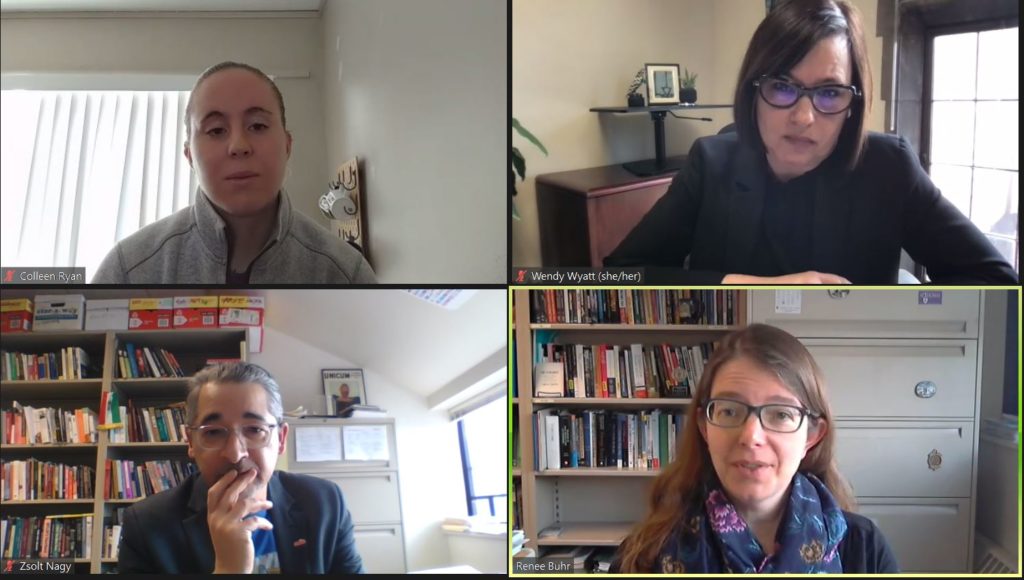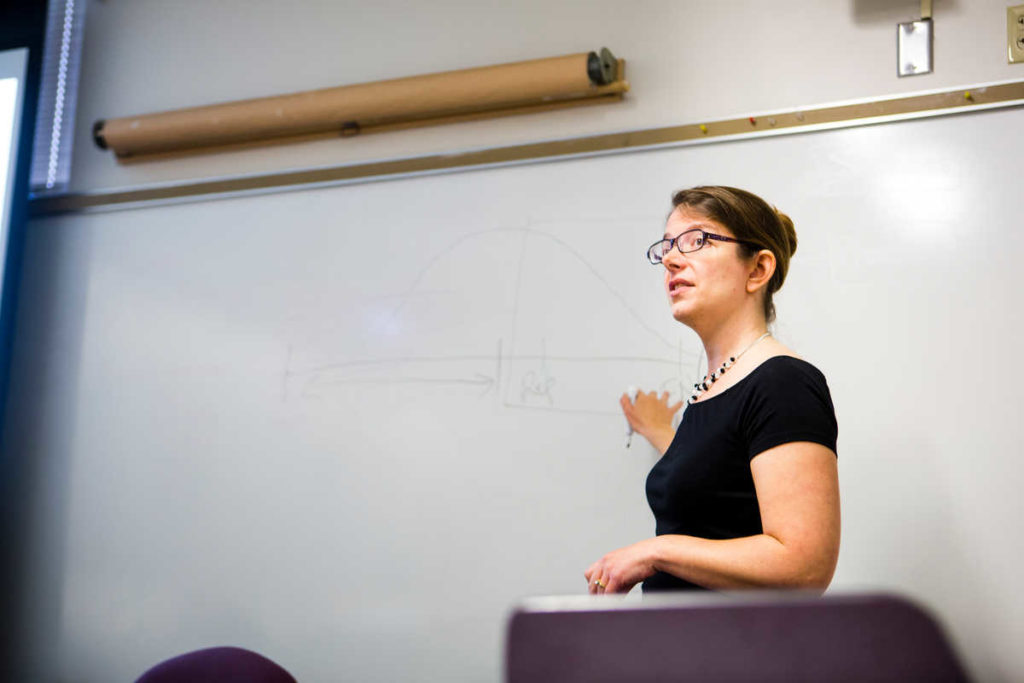A St. Thomas political science alumna was working on the ground in Ukraine in the weeks before Russia attacked. Stationed in Ukraine until the February 2022 invasion, Colleen Ryan ’14 operated as a monitoring officer with the world’s second largest regional security organization after the United Nations. The Organization for Security and Co-operation in Europe (OSCE), which has 57 member states, started its special monitoring mission to Ukraine in 2014, shortly after Russia annexed Crimea, Ryan said.
Ryan, who spoke as part of a recent St. Thomas panel discussion on the war, said she was a part of the 11 monitoring teams throughout Ukraine who would patrol and take note of cease-fire violations in accordance with the Minsk agreements.
“There was a whole buildup going for years,” she said. “But the last week I was there, there was hardly anything going on. I don't think I registered any cease-fire violations. The winter overall was pretty quiet. Ukraine was committed to the Minsk agreements and to finding a way out of this conflict without actually retaking the Donbass. Then, the week before the invasion, we saw an increase in shelling around the area. It was a lot of Russia instigating more cease-fire violations in the name of having a cause to go into the region.”
Geopolitical location tied to fate
When Russia invaded Ukraine in February 2022, Russian President Vladimir Putin had many justifications for his long-feared attack, but historian and University of St. Thomas professor Zsolt Nagy, PhD, says none were grounds for the “unprovoked and belligerent attack on the independent and sovereign state of Ukraine.”
“Let's just make this one thing clear: Ukraine is not and never has been a historical part of the Russian empire,” Nagy, said as part of a recent panel discussion on the war. “The tragedy of Ukraine has to do with its geopolitical location. Ukraine, as is most of Eastern Europe, often finds itself being a part of a larger game between the great powers.” (The “great powers” include China, France, the United Kingdom, the United States, as well as Russia, due in part to their permanent veto power on the U.N. Security Council.)

How did we get here?
When the Soviet Union broke apart in 1991, many states, including Ukraine, were detached without the ability to set the groundwork for their own independent statehood, said Renee Buhr, PhD, a political science professor and director for international studies at St. Thomas who has worked for the Rand Corporation, CIA and the World Bank.

“In the case of Ukraine, you end up with leadership from 1991 until 2004 who are really just former Soviet officials not particularly keen on creating a really viable or vibrant independent state,” Buhr explained. “It's not until 2004, there’s this really presidential pivotal election where you're having a real contest about the future of the Ukrainian state. Is it going to continue in this sort of vaguely Soviet, pro-Russian direction that it had been since 1991, or is it going to ‘return to Europe?’”
The election was fraught with problems, including allegations of voter intimidation and fraud, Buhr said. The future of Ukraine and its relationship with Russia wasn’t settled with that election, nor in the decade following with massive revolutions, protests nearing civil war and an increasingly corrupt and authoritarian, pro-Russia head of state, Viktor Yanukovych.
“In 2014, Yanukovych flees to Russia, and he's under Putin's protection,” Buhr explained. “Shortly after that, Russia invades and takes control of Crimea and then takes the supporters, the Russian-backed separatists. That's how we end up with this sort of semi-autonomous part of Ukraine that is reliant on Russia.”
Where do we go from here?
Since the invasion, there’s been widespread sanctions against Russia and the continued delivery of weapons and humanitarian aid, but other nations have yet to become militarily engaged, Ryan said. She added that President Joe Biden has made it clear that he won’t put U.S. troops on the ground, and she believes NATO is reticent to get involved beyond supplying weapons.
“If NATO or the U.S. were to get involved, it would be a last resort if Putin chose to use nuclear weapons,” Ryan said. “In the meantime, I think we'll continue to see more military aid to Ukraine, more humanitarian aid. I don't see it changing. Ukraine has done a good job in terms of fighting and stalling Russia's advances. In the coming days, I think if Russia continues to see the military losses they have, it might increase Ukraine's negotiating position, but again, it'll depend on Russia's demands and Ukraine not willing to cave into those.”






